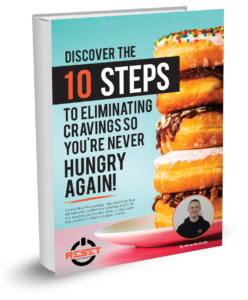One of the biggest differences between strength and conditioning (s & c) programs for athletes and s & c programs for the general public is that for the general public, their s & c programs could be the main event when it comes to being active.

By that I mean many people simply go to the gym as their main means of exercise. Their goal might be to lose body fat, build some muscle, look better and their s & c program is how they are going to do that.
Depending on the individual person, they can hit the gym floor and give it everything they have got. They can channel the majority of their energy into those sessions and then chill out. They can even throw in some bicep curls in preparation for summer and it’s still all good.
The same isn’t true for the majority of athletes. For them, their s & c program mainly serves as a support for their chosen sport and not as the main event in and of itself.
Unless you are a powerlifter, olympic lifter, kettle bell athlete, bodybuilder, etc., your s & c program is a tool. A very valuable and important tool but still only a tool. It’s there to make you more explosive, more resilient, to help manage your core strength and mechanics, etc. By doing these things you will see a transfer to your sport in ways such as higher jumps, less injuries, better running mechanics, more fluid change of direction o the pitch, etc.

Many athletes and coaches get this so wrong. Instead of having the philosophy that they are an athlete who strength trains to support their sport, they often adopt the philosophy that they are a strength athlete who runs/plays football/swims, etc.
This upside down philosophy is the exact opposite of how an athlete should train.
If you are an athlete and want to get the most out of your time spent in the gym, here are a few simple tips that will serve you well 99% of the time. Feel free to throw in a few sneaky bicep curls the other 1% of the time.
- Realise that you need an optimal amount of strength to perform at your best. Adding more is cool but unnecessary for your sport- your time would be better spent working on other important areas
- avoid getting too sore from your gym sessions- nothing good will come from this
- Make sure your best session of the week is on the pitch, track, etc.- not in the gym
- avoid adding new stuff in prior to competitive events- a sure way to get sore and reduce your performance
- Resist the urge to turn into a bodybuilder, powerlifter, olympic lifter or crossfitter- you’re none of them
- get your programs designed by a real sports strength and conditioning coach, not a gym instructor- this will pay dividends to your long term performance
- Realise you only have a small amount of time available for the gym- make it count by dropping the fancy shit and focusing on becoming great at the basics
- Drop anything that carries a high amount of risk for you
- Get strong on 1 leg
- Never crawl out of the gym. Put in a solid effort but don’t deplete all your energy before your event
Always remember that the best athletes train smart. Following the above tips will make sure that you are among them.


Leave a Reply